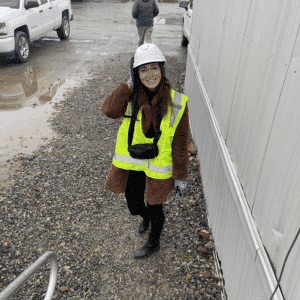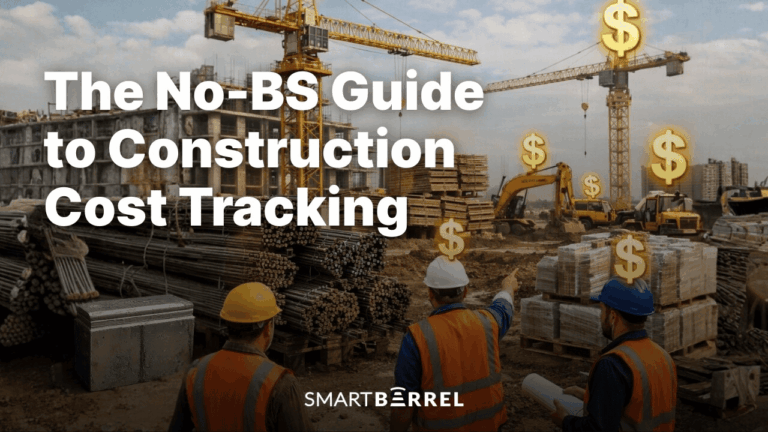The construction industry is not for the faint of heart, but when it comes to a high-paying, high-reward job, it’s at the top of the list. But what if the economy begins to a downturn and work becomes scarce? This presents a problem for big and small businesses because money becomes scarce. Like most companies, a business’s prosperity depends on the economy, and construction is no different. The construction industry ebbs and flows. When the economy is up, construction thrives, but when it is down, many companies are faced with a difficult decision on whether or not to fire or suspend some of their workers. This is where the Federal government comes in with certified payroll construction projects. The government will increase its spending in a down economy to stimulate growth and get the United States out of a recession. One such area of expenditure is construction.
When the government increases its construction spending, it allows companies to pivot the type of projects they are pursuing to ensure their businesses can continue to thrive and keep employees on the payroll. On federal projects, a construction company is virtually guaranteed to be paid for the work they complete. As a construction company, you won’t have to worry about a privately funded project running out of financing, a company going bankrupt, or an owner calling it quits and leaving everyone high and dry. However, to be paid, each contractor must follow a specific process created by the federal government to ensure they are accurately reporting their progress on projects, and that they are paying their people through accurate reporting on certified payroll.
What is certified payroll?
This is where certified payroll comes into play but what exactly is certified payroll?
Certified payroll is essentially the government’s promise to pay your employees if you work on a Federally funded construction project. This ensures that your company and employees are paid for their work. One way to think of certified payroll is like a bond the government issues, but instead of having to purchase the bond and wait years to be paid back, you perform work, and the government promises to pay weekly.
The origins of certified payroll construction projects
How did certified payroll come about? Certified payroll began with the passing of the Davis-Bacon act. The Davis-Bacon act was established to determine the prevailing wages in each area of the United States. A prevailing wage is a set amount each worker gets paid for a specific job, such as a welder, fitter, rod buster, etc. The Davis-Bacon act ensures the workers are paid no less than that set amount. This applies to any project over $2,000. So, once a construction contract reaches over $2,000, prevailing wages begin to go into effect, and all companies must abide by the rules and pay their workers a fair and “prevailing” wage.
It may sound easy but working on a certified payroll project requires a good amount of paperwork to be considered “legit.” To get workers paid, a company must follow specific steps, such as filling out Form WH-347, ensuring proper labor laws are followed, and all forms needed are filed every week.
To be considered compliant on certified payroll reports, the employer must include the following in their reports:
- Worker’s full name
- Work classification
- All hours worked
- Pay rate
- Total pay earned
- Any deductions
- Net pay earned for the week
If any of this information is wrong, the employer has seven days to correct it or face penalties. In addition to the information above, a company must include the following:
- Company Information
- Project information
- Payroll Number and Date
- Weekly Calendar
- Payroll Information
- Statement of Compliance
The red tape is to ensure each employee on a government project gets paid according to the prevailing wage for the project’s area and that each contractor performs the work they are hired to do.
The benefits of taking on certified payroll projects
With all the hassle associated with certified payroll, why would any company choose this route? Well, as mentioned above, certified payroll ensures the following: A company’s employees are paid fairly and on time, a company has work to perform in a down (or even up) economy, and all work performed is backed by the United States Government. In addition to the abovementioned, performing certified payroll projects also allows construction companies to get a foot in the door for other federal projects. Being awarded a federal project is no easy task. There is a laundry list of steps a construction company must take even to be considered for a project, not to mention if the projects require a specific security clearance. However, once awarded, this gives credibility to the construction companies, opening them up to more Federal projects in the future.
What are federal construction projects?
Federal projects can be big or small, but many high-profile projects, such as the Department of Homeland Security HQ, D.C. Parking Garage, New FBI buildings, etc., add massive credibility to major and minor construction companies across the country. That is why certified payroll projects can be such a big deal. After all, a company’s reputation is everything because it takes hundreds of projects to build a good reputation and one project to lose it.
How do you find federal projects to bid on?
So, how does one go about finding Federal projects? There are many ways to find projects for a federal job, but a few to mention are SAM.Gov, BidNet.com, Governmentbids.com, and many more. Each website requires you to enter your information and prove that you are eligible to perform the projects listed. Relationships are another way to build credibility and know what projects are coming up. As with any career, build relationships with those you work with; over time, your company will become abreast of many new projects in the pipeline.
There are also ways to position your company for success, such as (as mentioned above) great relationships with your subcontractors, vendors, owners, etc. You have a high track record of successfully completing projects; those in the industry know your company as one with high morals and men and women with high character. If you are a company that cares about its work and customers, then this sets you up for success in the long run.
Certified payroll has its advantages and disadvantages, but certified payroll is still worth the hassle when it comes to a legitimate and steady form of work and payment for your employees. Not only does it provide your company and its employees with the peace of mind they will be paid fairly and on time, but federal projects can provide your company with a steady and consistent pipeline of projects for years to come.




